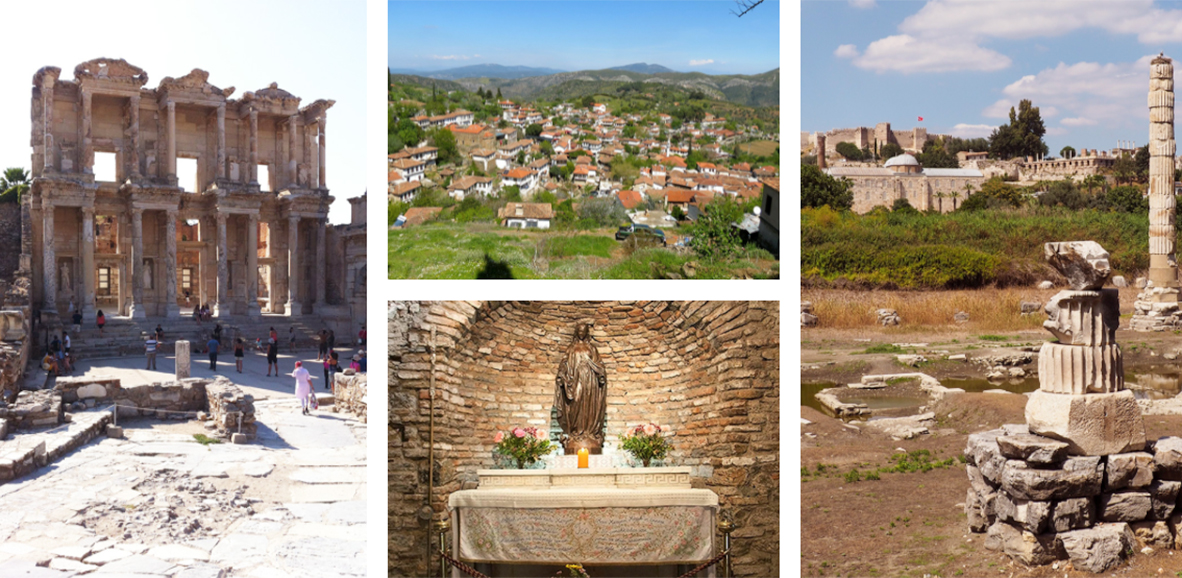Ephesus is a historic city in Turkey’s Izmir province and the west of Turkey. It is one of Turkey’s most popular tourist destinations, visited by millions of people each year. It is one of the finest-preserved ancient cities in the world. As a result, millions of tourists visit it every year.
The city’s name is thought to have come from “Apasas,” the name of a settlement in the Kingdom of Arzawa that meant “city of the Mother Goddess.” Some academics believe that the labrys, Crete’s double-axe emblem representing the mother goddess, which adorned Knossos’ palace, originated in Ephesus.
Ephesus is a must-see ancient city, noted for its well-preserved historic ruins such as the Library of Celsus, The Hadrian Temple and The Grand Theatre. It is also close to significant holy sites like Seven Sleepers, Basilica of St John, Temple of Artemis which was one of the Seven Wonders of the Ancient World as well as the House of the Virgin Mary. The House of the Virgin Mary in particular is a very important site in Catholic Christianity.
Ephesus was always a significant city for the Roman Empire and the Byzantine Empire. The legacy of the Roman Empire may be seen in several buildings in Ephesus today. Ephesus was a seaport city in ancient Turkey that is still well-preserved today. The city was once dubbed the most significant Greek city and the Mediterranean’s greatest trading center. Ephesus has withstood numerous assaults throughout history and changed hands many times among invaders, yet it has remained an important archaeological site and Christian pilgrimage destination.
Ephesus is frequently mentioned in the Bible. Paul arrived in Ephesus for his second missionary journey and stayed there for two years, during which “all the Jews and Greeks who resided in Asia heard the word of the Lord” (Acts 19:10). Because to its accessibility and prominence throughout the region, Ephesus was a great location for evangelism throughout the province. Ephesus was the city where Paul and his men were taken to the enormous amphitheater, where the mob shouted for two hours, “Great is Artemis of the Ephesians” (Acts 19:23–41). Despite strong protests against Christianity, many Ephesians accepted Christ as their Lord because of Paul and his companions’ dedicated service. A church was formed there, and a few years later, Paul wrote them a letter known as book of Ephesians. Four hundred years later, Ephesus became home to one of Christianity’s most important councils — called the Council of Ephesus.
Ephesus Ruins is a UNESCO world heritage site and contains ancient buildings dating back to the Roman, Byzantine, Seljuk and Ottoman periods. The cost of entrance is 120 Turkish Lira per person until April 2022. Children under the age of eight are free to enter. There is an extra 55 Turkish Lira per person entrance fee for the Terrace Houses which are the houses of the rich people that are decorated with mosaics and frescoes.
Please click here to get more information about Ephesus Ancient City.



Comment (0)